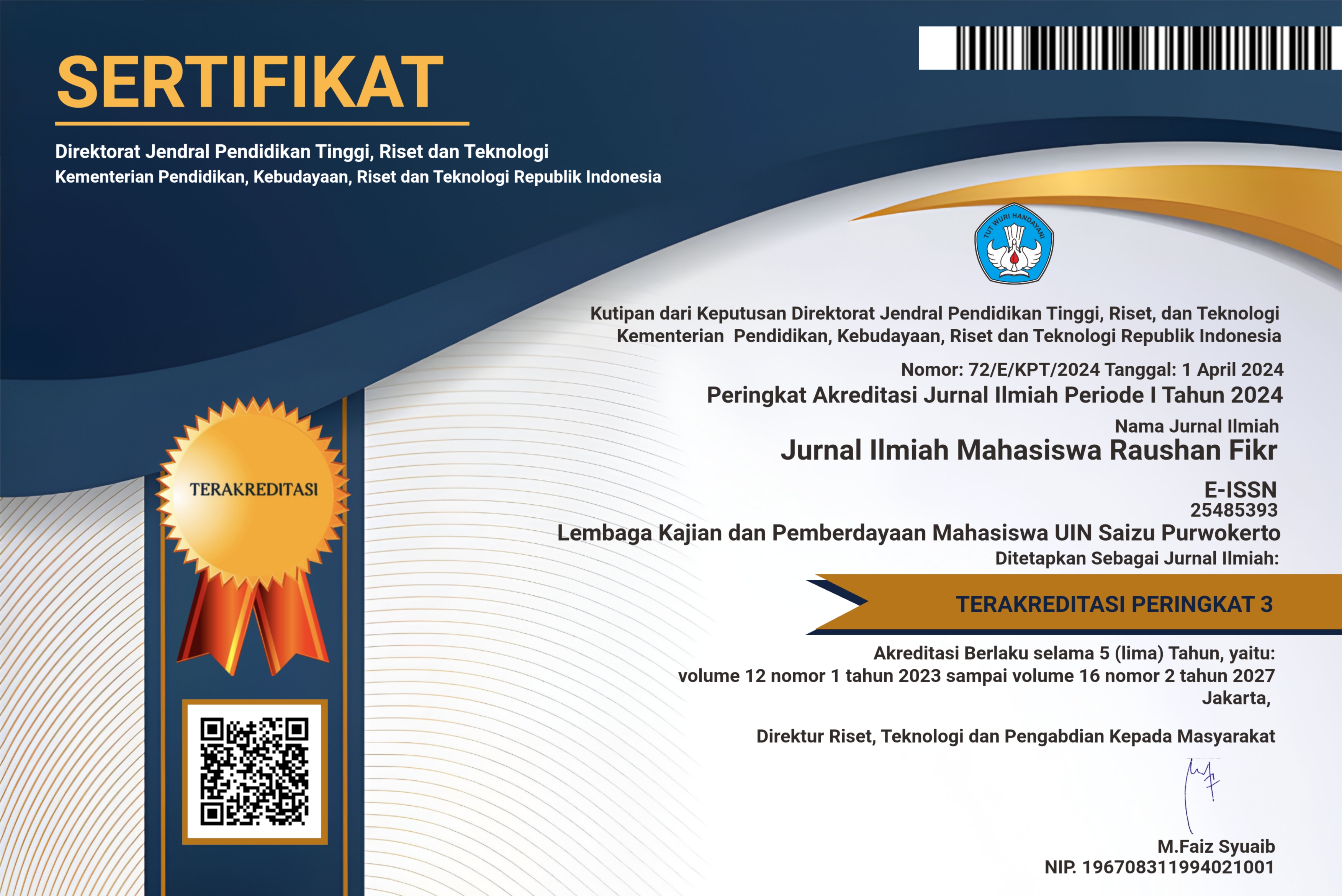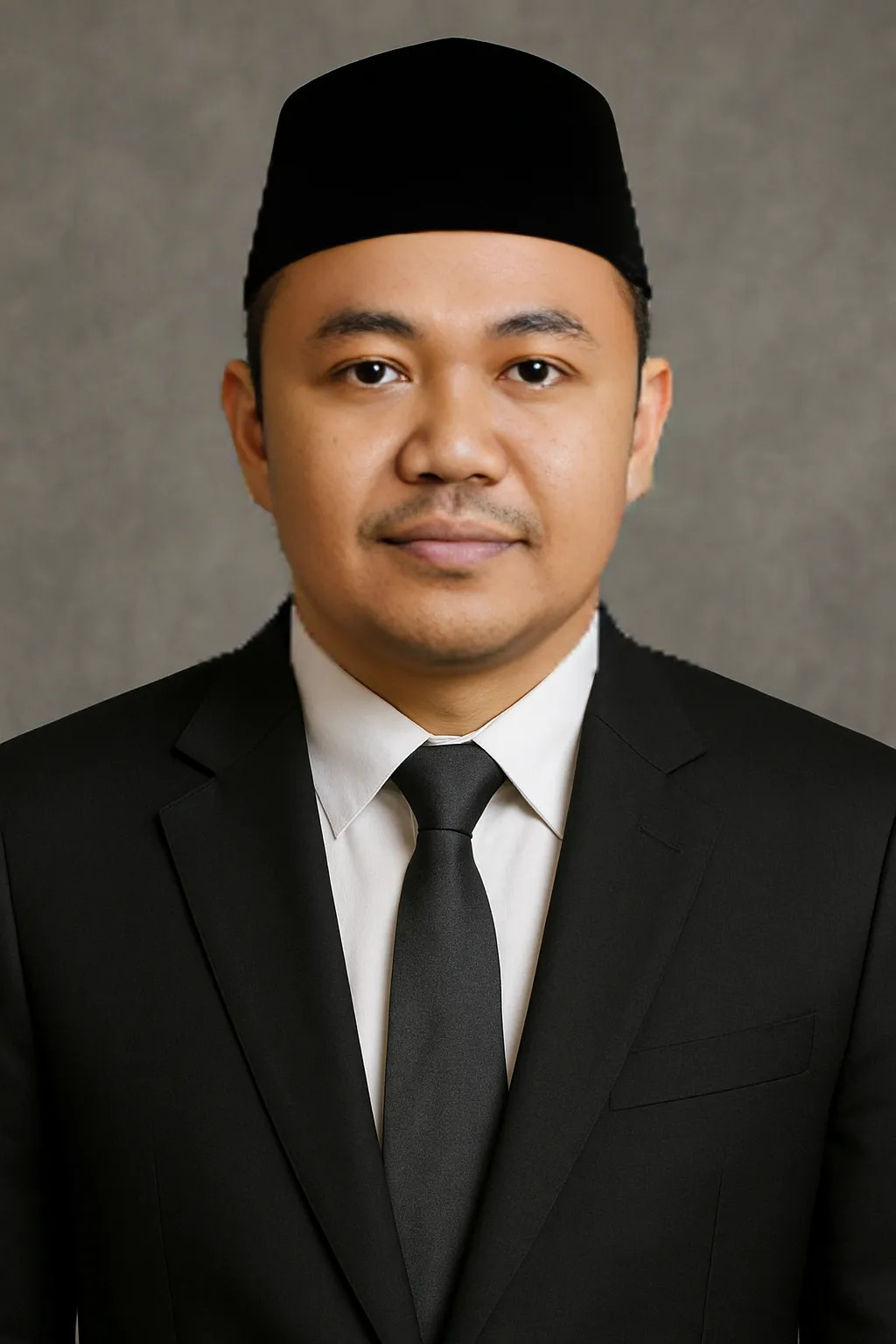Pemikiran Al-Farabi tentang Pendidikan dan Relevansinya dengan Dunia Kontemporer
DOI:
https://doi.org/10.24090/jimrf.v10i1.4687Keywords:
Al-Farabi, Education, IdeaAbstract
According to Al-Farabi education is a means of obtaining a series of values, knowledge and skills. Islamic education according to Al-Farabi must emphasize the formation of morals and reason. Utilization of reason to acquire knowledge must be accompanied by good character building. The purpose of this writing is to find out the biographical background, life, and thoughts with Islamic education in this modern era. The method used in the preparation of this paper is the library research method. Researchers collected data sources through text literature, both books, journals, and articles related to this discussion. The primary source of this paper is the journal of Educational Concepts According to Al-Ghozali and Al-Farabi (a comparative study of thought) by Agung Setyawan, UIN Sunan Kalijaga. The results showed that Al-Farabi was a philosopher and Muslim scientist who mastered various fields of science and language. The thought of education according to Al-Farabi is to prioritize the formation of morality or morality. Knowledge according to Al-Farabi is clean, and will only be obtained by people with a clean heart and good character. In the educational process according to Al-Farabi a student must pay attention to any differences in the potential that students have.Downloads
References
Arifin, M. (n.d.). Filsafat Pendidikan Islam. PT. Bumi Aksara.
Azra, A. (2014). Pendidikan Islam Tradisi dan Modernisasi di Tengah Tantangan Milenium III. Kencana.
Gunawan, H. (2014). Pendidikan Islam Kajian Teoritis dan Pemikiran Tokoh. Remaja Rosdakarya.
Maragustam, M. (2021). Strategi Pembentukan Karakter Spiritualitas Keagamaan dan Cinta Tanah Air dalam Perspektif Filsafat Pendidikan Islam. Dayah: Journal of Islamic Education, 4(1), 1–22. https://doi.org/10.22373/jie.v4i1.7122
Nurmuhyi, M. A. (2016). Pendidikan Akal Budi Perspektif Al-Farabi (Telaah Filosofis atas Pemikiran Pendidikan Al-Farabi). Tarbawy : Indonesian Journal of Islamic Education, 3(2), 185–192. https://doi.org/10.17509/t.v3i2.4522
Ruswantoro, A. (2015). Filsafat Islam Trajectori, Pemikiran dan Intepretasi. FA Press.
Setiyawan, A. (2016). Konsep Pendidikan Menurut Al- Ghazali dan Al-Farabi (Studi Komparasi Pemikiran). Tarbawiyah: Jurnal Ilmiah Pendidikan, 13(01), 51–71.
Siregar, M. (2010, June 15). Tantangan Pendidikan Islam Menghadapi Era Globalisasi Oleh: Prof. Dr. H. Maragustam Siregar, MA. Maragustam Siregar. https://maragustamsiregar.wordpress.com/2010/06/15/tantangan-pendidikan-isalam-menghadapi-era-globalisasi-oleh-prof-dr-h-maragustam-siregar-ma/
Siregar, M. (2020). Filsafat Pendidikan Islam Menuju Pembentukan Karakter. Pascasarjana FTIK UIN Sunan Kalijaga.
Sugiono. (2014). Metode Penelitian Pendekatan Kuantitatif, Kualitatif Dan R&D. Pustaka Pelajar.
Supriyadi, D. (2019). Pengantar Filasafat Islam. Pustaka Setia.
UU Nomor 20 Tahun 2003.pdf. (n.d.).
Waris, W. (2004). Pemikiran Pendidikan Al-Farabi. Cendekia, 2(2), 13–20.
Downloads
Published
How to Cite
Issue
Section
License
Authors who publish with this journal agree to the following terms:
- Authors retain copyright and grant the journal right of first publication with the work simultaneously licensed under a Creative Commons Attribution-NonCommercial-ShareAlike 4.0 International License that allows others to share the work with an acknowledgement of the work's authorship and initial publication in this journal.
- Authors are able to enter into separate, additional contractual arrangements for the non-exclusive distribution of the journal's published version of the work (e.g., post it to an institutional repository or publish it in a book), with an acknowledgement of its initial publication in this journal.
- Authors are permitted and encouraged to post their work online (e.g., in institutional repositories or on their website) prior to and during the submission process, as it can lead to productive exchanges, as well as earlier and greater citation of published work (See The Effect of Open Access).
















